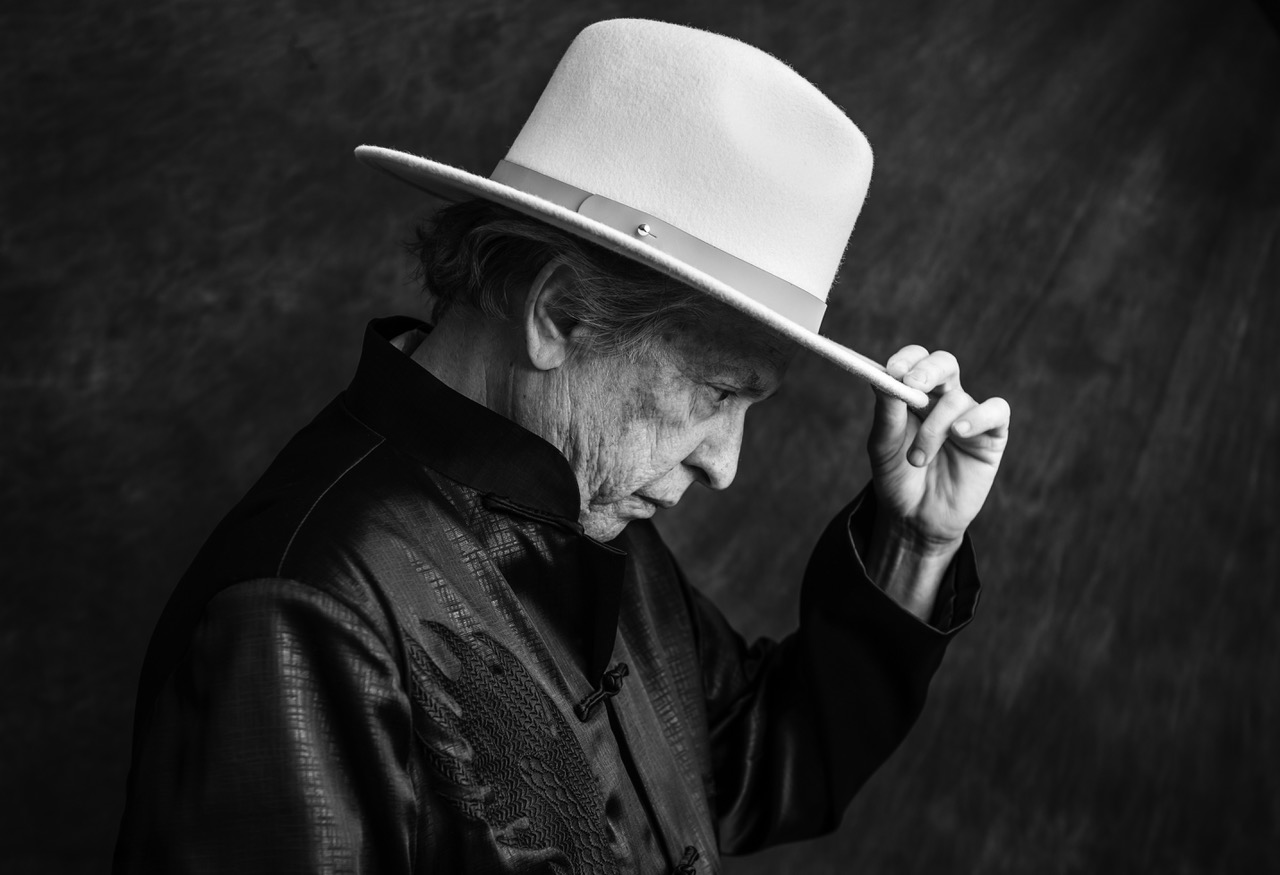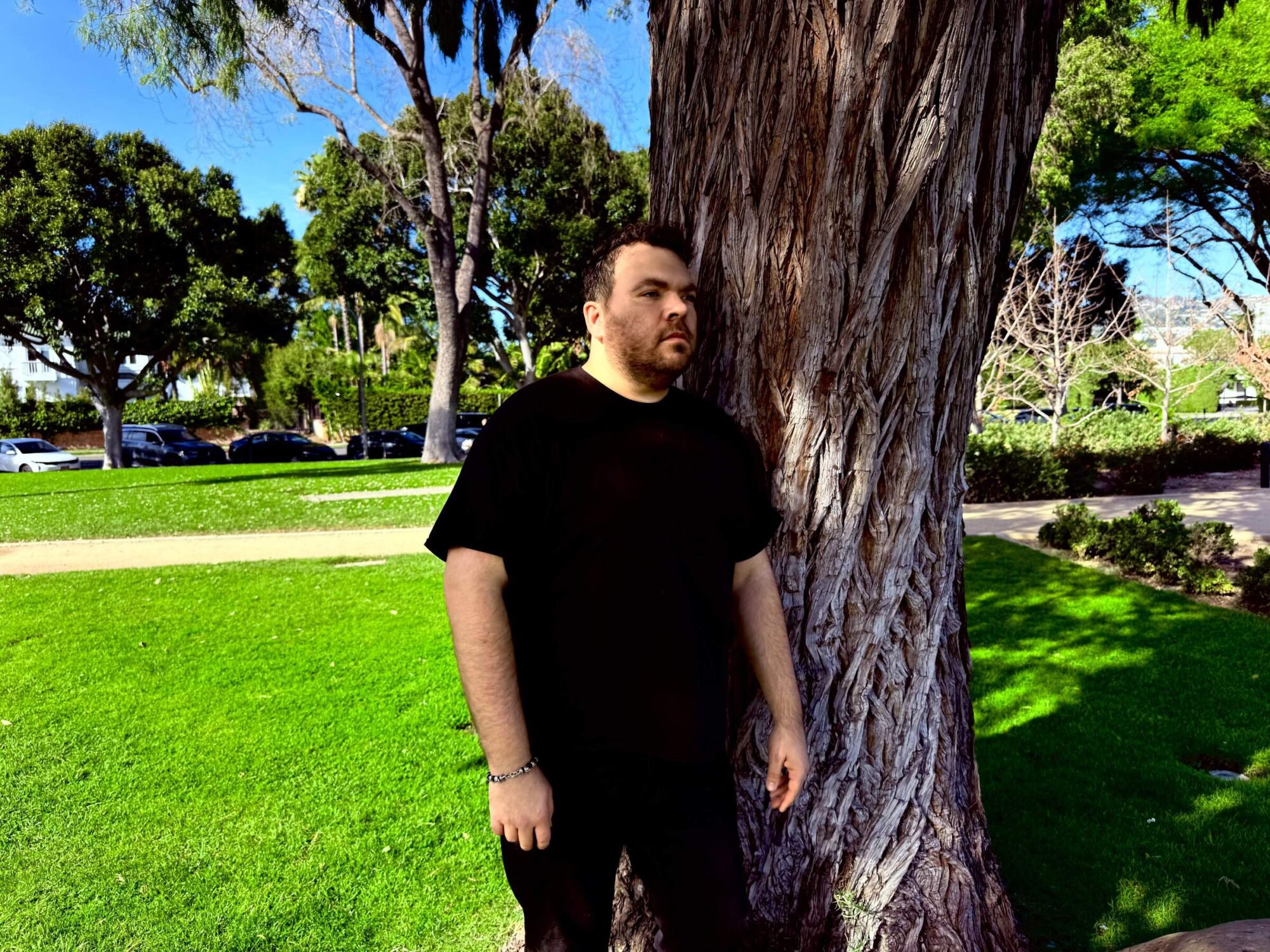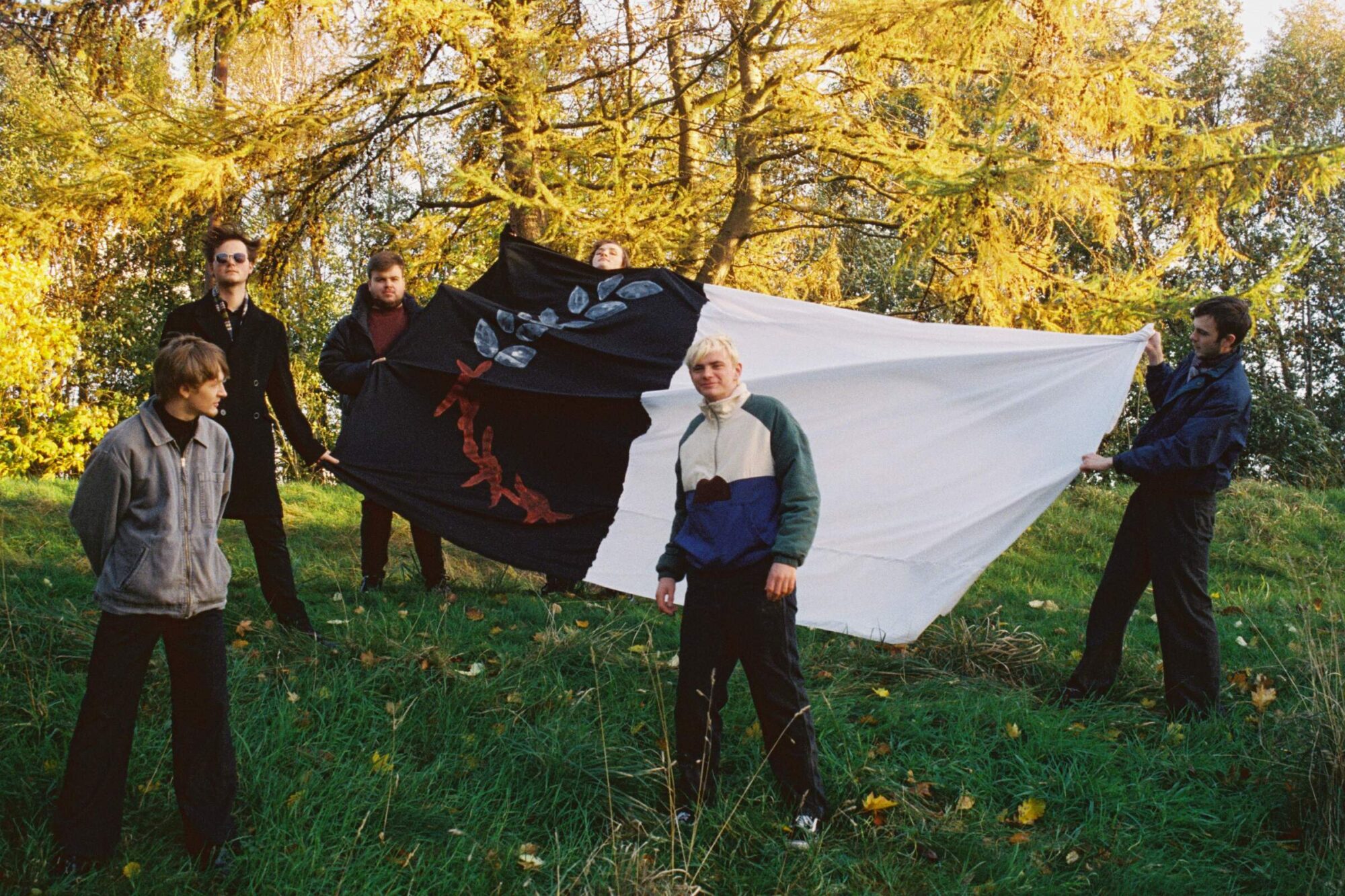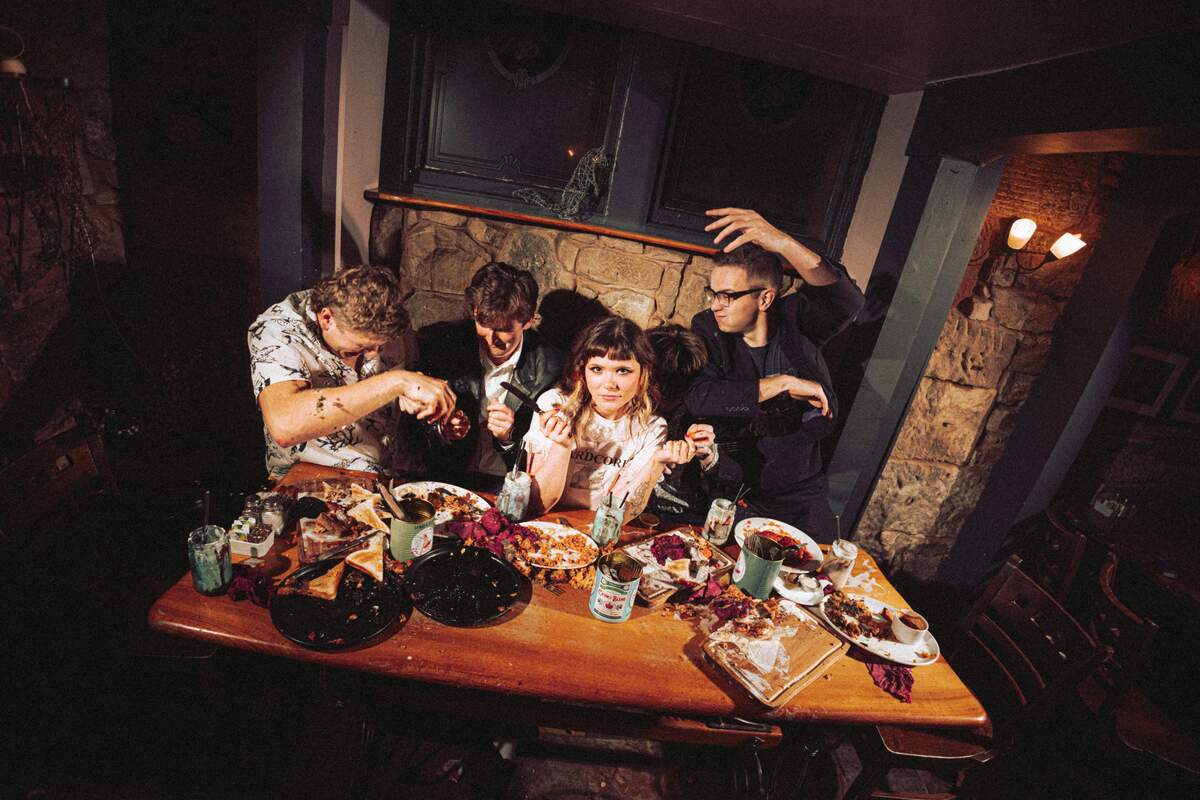From Brian Wilson to ‘I Love My Life’: An Interview with Stephen Kalinich on a Life in Verse and Song
Stephen J. Kalinich is a true artistic nomad, a poet and songwriter whose life’s work is a persistent, gentle call for peace and humanity.
With a history as a lyrical collaborator for music icons like Brian Wilson and Dennis Wilson, Stephen’s career is a study in quiet, profound influence. He’s documenting life as it unfolds, from the optimistic beginnings of the 1960s to the vulnerable realities of the global pandemic. His philosophy, though rooted in idealism, has evolved to embrace realism, recognizing that peace isn’t just a state of mind, but a result of compassionate action. Stephen has learned that you have to be tough and pragmatic in the face of injustice while remaining grounded in kindness and grace. He truly embodies the spirit of an artist who continues to grow and change, proving that a creative mind is never finished learning or expressing itself.
His latest album, ‘I Love My Life,’ is a remarkable and innovative collection that moves beyond the typical album structure. It weaves together co-written songs with impromptu, spoken-word performances recorded during a time of global uncertainty. This creative approach transforms the record into a documentary of his thoughts on topics like aging, gratitude, and societal challenges, all delivered with an earnestness that feels real.
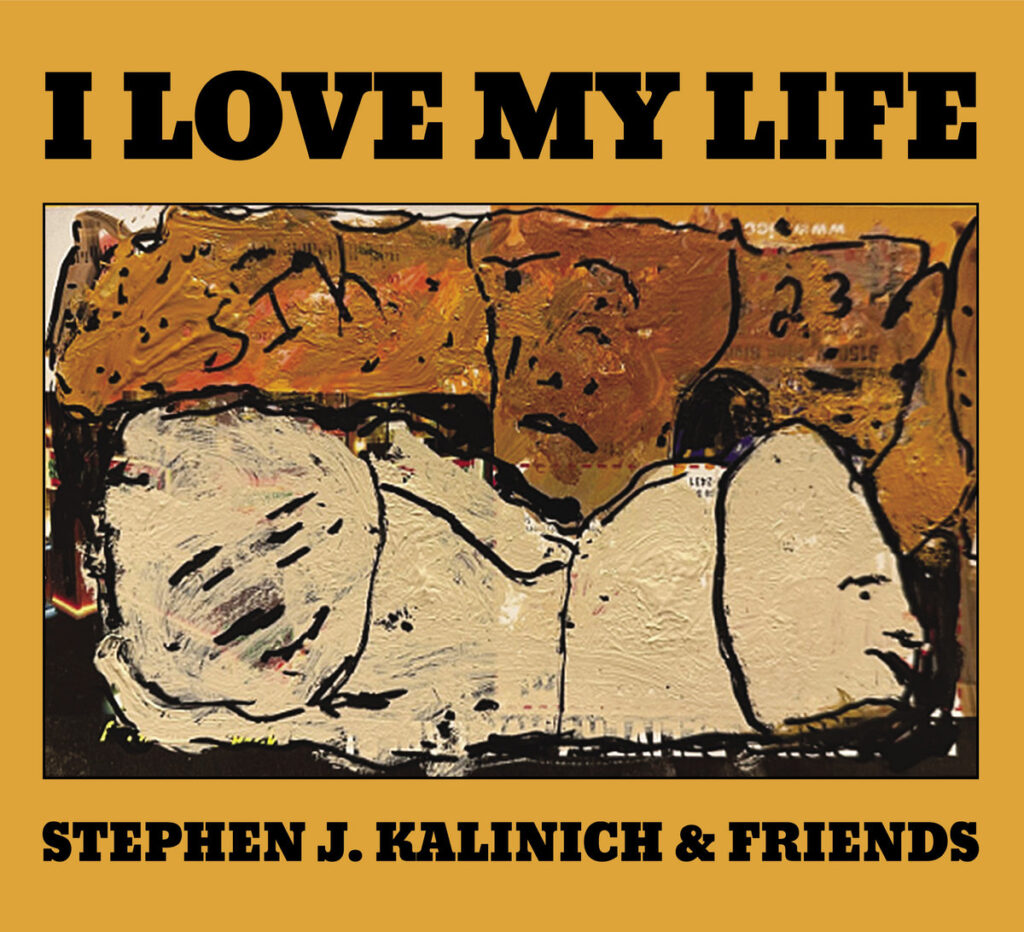
“Think of the good that you can do through the days of life”
‘I Love My Life’ is described as a “stylistic departure,” moving from poems with accompanying scores to co-written songs interspersed with improvised spoken-word performances from the pandemic era. Given your deep roots in lyricism and poetry, what was the genesis of this structural shift? Was it a conscious decision to break from the “lost album” narrative of ‘A World of Peace Must Come’ or a more organic evolution driven by the unique circumstances of its creation with Milo Binder and Willie Aron during the pandemic?
Stephen J. Kalinich: I guess you’d say it evolved. When we started recording, I’m not sure that we were all on the same page. We agreed on certain things, but I was maybe a little difficult with Milo [Binder aka Todd Lawrence] and Willie [Aron]. It took a while to figure out what we wanted the album to be. I appreciated their sensitivity to me.
This one is different from my other record because the other one is really like an art piece that I was creating with Brian [Wilson]. This one is also hopefully an art piece, but it’s also kind of a documentary about me and how I think. It’s about my relationship to peace and love and to this whole time we’re currently experiencing today. I think lately my work is becoming more like documentaries. Maybe I’m older or whatever.
The press release highlights your social media posts during the pandemic as the inspiration for the improvised spoken-word sections. Can you elaborate on the transition from a fleeting digital presence to a permanent audio fixture on the album? How did you approach translating these often immediate, unedited reflections on “life as well as the world in its current state” into a curated album experience? Were there any particular challenges or revelations in immortalizing these more ephemeral musings?
I record my thoughts and poems on my phone. I could be riding on the bus and I record my thoughts. I like the freestyle of it because when you’re trying to do a poem or rhyme you don’t get the same freedom and it’s not as effective for getting your point across as when you’re just talking. I made videos of myself and shared them on the computer.
Milo asked me to send him the videos I had been posting so he could take the audio off the videos and use them for the album. Putting them together onto one record, I think that is unique. I’ve recorded a lot of videos that way, but I had never thought of putting them together as a record. Milo brought that idea to the table.
I gave him the choice of which videos to use because there were too many. He picked the ones we used. I gave him a lot of recordings, probably hundreds, and he chose the ones that were best for making a cohesive record. So part of the curation was that I let him pick because there was too much for me to sift through.
I participated in directing the making of the album, but the idea of using the spoken word with the music is very good. I let go of a little control. I trusted Milo with his outside view to tell me which ones moved him, and then he put the poems and words into songs. I think we could even make a movie or put my paintings to music. It could be a documentary where I answer questions about life that would serve the same purpose as an album, maybe in a new art form.
Milo Binder mentions wanting to “do something different with Stevie this time around.” Putting aside the usual structure, how do you think working with Binder and Aron has brought out new sides of your artistic voice, especially in the songs you co-wrote together? Are there any particular lyrics or sounds on I Love My Life that came from this teamwork that you might not have explored on your own?
I am not sure that I wouldn’t have explored these topics on my own, but I felt that by trusting Milo and Willie, I opened myself up to collaboration. They always said that their goal was to take my poems and my words and present them as an album.
At the start of the project, I sent Milo a bunch of poems I had written. He wrote melodies and together we shaped them into song lyrics. I think we ultimately became quite a powerful songwriting team. Milo brought Willie in as a co-producer, or whatever they called themselves, and Willie added the extra musical texture.
I would say it was a strong, combined force. We learned to work together in harmony without threatening our own individuality because none of us stopped being who we are. We all held true to our vision. We did some give and take and came out with appreciation, love, and respect for one another. That’s what this album is all about. I’m grateful to everyone in my life and all who worked on the album. I love these songs and these lyrics, and maybe if I was collaborating with anyone else, I wouldn’t have been able to come up with the same things.
You’ve consistently championed themes of peace, even predating the Sixties peace movement. ‘On I Love My Life,’ you delve into topics like homelessness, aging, and narcissism. How do you see these more grounded, often challenging societal observations connected with your enduring vision of ‘A World of Peace Must Come’? Do you feel like your philosophy has evolved, like maybe finding peace now means facing some tough human realities head-on?
I think that when Brian and I initially started ‘A World of Peace Must Come,’ we thought that through thinking, doing, and playing songs we could bring about change. But I think what I’ve come to realize, and probably Brian did too, is how difficult change is. It can’t just be idealism. You have to incorporate action. You can’t just write pretty thoughts and great melodies. That’s not enough for someone like me. I want to be an activist in the sense that you must act with kindness.
That’s why when I wrote that poem ‘The Days of Life,’ “Think of the good that you can do through the days of life,” I think that’s the essence. And how realistic is it? Everyone’s not going to come into your fold. So you have to be tough and realistic, but you also have to stop evil. You need action at some point. I’m not saying how aggressive, but you can’t just lay down because you will be rolled over by the Nazis, by a steam engine, by something. You have to stop and act. And that’s the ingredient.
For peace to come into the world, you have to have actions too. We must stop individuals from having the kind of thoughts that would destroy. I think even this form of capitalism needs to be altered. Not replaced by Communism, but altered so that more of the money can spread to more of the people. It’s not right that one-tenth of one percent own most of the world. It’s just not right. That’s my view.
The album features contributions from musicians like Randell Kirsch, LuAnn Olson, and Rob Bonfiglio. Your work often involves a lot of collaboration. How did these particular voices and instrumentalists add to the unique sound of ‘I Love My Life,’ especially with the mix of co-written songs and spoken word? Were there any moments during the recording at The Pie Studios with Jeff Peters where their input really shaped the final vision?
I think we did it together. I think Milo, Willie, Jeff, and I came up with an agreement on how we would do it. So I would say it was a group effort at that point.
I remember that whenever Randell would come in for a session, he would ask me, “Stevie, what does this song mean to you?” He always wanted to start off with that as inspiration. Then I’d say a few words about the song. I liked that everyone who came to play or sing took a moment to listen to me talk about my philosophy of life and forgiveness. It was like a meditation in the morning or a little spiritual break. We almost started every session that way, and it helped everyone to get in the right mood for playing.
I also really appreciated the spirit everyone brought. You can hear it in the singing. They are not doing a lot of extra stuff with their voices to show what they can do. Everyone really just came to contribute to the flow of the album. They were all good singers who could have stolen the show, and that would have been great, but it wouldn’t be what we wanted. They all put themselves into the project in order to share my beliefs.
“The battle doesn’t stop unless we stop trying.”
‘A World of Peace Must Come,’ your 1969 collaboration with Brian Wilson, achieved near-legendary status before its eventual resurrection. Looking back at that period and forward to ‘I Love My Life, how do you perceive the evolution of your relationship with your own work? Has the digital age and platforms like social media that inspired parts of this new album fundamentally altered your creative process or your expectations of how your art will reach an audience?
I don’t think that the new technologies have influenced my art at all, but what they have done is allowed me different avenues of expression. I think by opening up to all that is new, it’s evolving me into using new art forms for my kind of work. But the work itself is the same. I’m engaged in showing beauty and hope, but also the hard reality that we may never totally achieve change. The battle doesn’t stop unless we stop trying. We have to have action. ‘A World of Peace Must Come’ is still valid today.
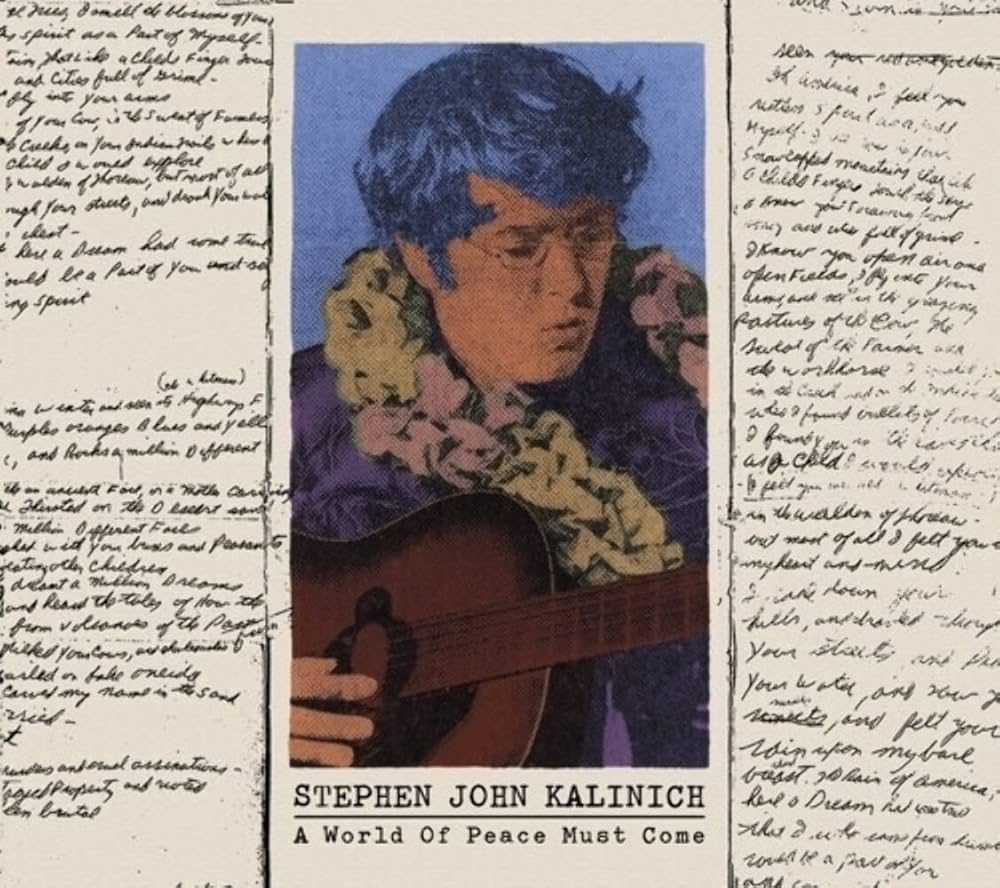
The album was recorded during a really vulnerable time for a lot of people. Can you share how both global and personal challenges influenced the writing and recording of ‘I Love My Life’? Did those tough moments make the lyrics feel more real and exposed, or did working with Binder and Aron bring a sense of comfort and strength?
I think it was a combination, but from my viewpoint, I think it only redefined my ability to understand discernment. I had to make choices and discern what I wanted to communicate and take my own emotional reaction out of it. I had to learn, “Don’t go there, Stevie,” like to be non-reactive in certain areas because if you stay reactive you’re not going to get a truthful perspective. I told myself to let go and listen to other people’s opinions. That is how I open the dialog from my consciousness and my view.
Your lyrical work with Brian and Dennis Wilson, especially on ‘Pacific Ocean Blue’ and ‘Friends,’ is truly iconic and has left a lasting mark. When you’re creating something new, like on ‘I Love My Life,’ do you ever feel the weight of those past collaborations, or does stepping into new sounds and stories give you a sense of freedom and discovery?
It gives me a freedom of discovery when I jump into new forms, but also, I’m sitting on that whole background, on the bed of what I was. I’m able to recognize that I was too idealistic. I needed to act more. I had to be able to self-correct. For instance, I sold my car. I don’t need my car. I had to learn to take buses. I had to readjust everything and all of the different pieces the same way. You have to readjust from the ideal to the practical, and the practical requires actions and not being reactive. You must watch out for people who try to sway you to their view, follow your own inner voice, but listen to what others say with discernment, and choose what you can apply. But in general, I try to listen to people. Listening is very important. A lot of people want to say their thing, but if you learn to listen, you can learn a lot.
So I’m not sure that I think that much of “past achievements.” These days I’m thinking less about hit records or even me creating world peace. I want good for others, but I’m not completely selfless. I’m not going to set myself on fire. I want to participate in the good I’m sharing like a merging, as opposed to sacrificing myself. My philosophy seems to be that I want to include myself in the good I wish for others. That’s an honest assessment. It is that kind of activism I work toward. That’s why I’ve worked with the homeless for more than 50 or 60 years now, and more recently for the fire victims.
You’ve been through a lot of changes in music production from the late sixties with The Beach Boys all the way to today. What stands out to you about how recording technology and the creative process have evolved over the years? Did using things like online improvisation and remote collaboration for ‘I Love My Life’ affect the music in ways that wouldn’t have been possible earlier in your career?
I’d like to make more albums using the idea of taking everyday conversations about life and putting them on a record like we did on I Love My Life. It’s much more realistic for me than the idea of me recording songs the standard way. I’m opening a dialog with other people.
As far as the process on this album, most of the songs were written long distance. Milo and I scheduled a phone call every Sunday morning to work my poems into song form. In the beginning, we worked over the phone, by email, and we sent sound files back and forth. We spent about a year doing this.
We got to the point of recording the record and brought a lot of friends into the studio to sing. We got part way through recording and then the pandemic shut us down after a few sessions. It took a while to figure out what the record was going to be because we couldn’t get back into the studio for years.
We started trying to work out how to finish the record from the sessions we had and we realized we weren’t going to get all 11 songs finished in the way we started them based on how much had been recorded. It seemed at this point that the record was not going to get finished and I worried it would be like ‘A World of Peace Must Come,’ another lost record.
I had been posting my poems online during the shutdown, and Milo and Victor Krummenacher grabbed a bunch of the audio from the postings and edited them and converted them into album form. All that was left to do was a few final touches and some cleaning up by Willie Aron and Jeff Peters. Overall, this was a very different process than anything I’ve ever done before, but I’m very happy with it.
The album concludes with the title track, ‘I Love My Life’. In an era often characterized by cynicism and despair, ending with such a declaration feels profoundly optimistic. What message do you hope listeners take away from this album, particularly from this closing statement, especially considering the “hard-hitting” themes explored throughout? Is I Love My Life ultimately an affirmation, a challenge, or perhaps both?
It is my call to say that even with all the problems in the world and all the things we have to change, I love that I got the gift of life. How few get it, we don’t even know. But to have that gift, even with its challenges and problems, I think that if you learn to love your life, you realize everything is impermanent in this existence. You learn not to get too attached to what you do and who you were and hopefully learn to know that at any point in your life you can change.
You can let go of reacting to everything and try to find freedom of clarity and maybe even healing, if possible. Sometimes you can’t, but if you just stand around and try to be nice to everyone, that’s not what this is about. This is a powerful statement. It’s strong. It has a strong theme. It is not laying down and rolling over. It is a challenge.
For me, after getting heart surgery 30 years ago when they said I had a half hour to live, the fact that I am around is all like grace. I know as I surrender now that it is all impermanent. Everything. And once I get closer to that I am less fearful of what will happen. I want to live as long as I can, but I also want to be able to surrender when I need to.
I love my life, but that doesn’t mean that every day is beautiful or that everything is always wonderful. I’m not that kind of naive. I love my life. I love the experiences I get to live. I love the ability to grow, to change, to walk, to talk. And now with these additional technologies, I want to use them to free up the human, not to take over for the human.
I’m a little scared of AI or whatever they call it, and I just don’t know, but maybe we’ll learn if it could serve mankind. I’m a little scared of all that. Like everyone else, I worry that the machines might take over. E. M. Forster wrote about it 70 years ago in The Machine Stopped. That was a great short story, and I always remember that.
I came out of that period of Nietzsche, of “God is Dead,” of Kierkegaard, of all those philosophers. Sartre, Guy de Maupassant, Shakespeare, Renoir, all the people and their thoughts and philosophies. They didn’t all live what they wrote or painted. They had apprentices. They had other people who don’t get as much credit as they should, but it’s evolving, and I hope to evolve with it too. To be more inclusive and try to help more people on the planet than we do and try not to jump into reaction so much.
So I love my life, but it’s not perfect. I still have to learn and grow.
“I would say I don’t know if I would be the kind of person I am without Brian Wilson.”
Brian Wilson has been such a unique creative force in your life and a longtime friend and collaborator. With his passing just before ‘I Love My Life’ is set to be released, even though the album was recorded before he died, his presence has always been part of your public and artistic world for so many years. Now, as you prepare to share this album filled with gratitude, acceptance, and the rawness of life, how does it feel to release it without Brian here? Do you sense a new kind of meaning or responsibility knowing that a big part of your musical conversation with the world, one that started with him, has changed forever?
I would say I don’t know if I would be the kind of person I am without Brian Wilson. I still feel his presence even though he’s not here in the flesh. I still feel his support, especially when no one else thought I was worthwhile, back when people thought it was crazy for a popular musician to become friends with a poet.
I’m sure the other members of the band, who are all friends with me now, were not overly thrilled at first that Brian was spending his time doing projects with me when we were about twenty years old.
The great thing is that I’ve inherited his family: Carnie, Wendy, Leo, Lucy, and all his grandchildren. I’ve inherited a whole family of my own from Brian, and I doubt I would even be where I am without him. So he still lives in me.
I will always miss him in the flesh, but the spirit he created and his belief in me allowed me to get to this point in life. I give him a lot of credit.
The other person I would give a lot of credit to, even though this question is about Brian, is P.F. Sloan. Those were the two strongest influences in my life for both my music and my philosophy. They both seemed to really understand me.
What’s next for you?
Everything. Whatever the universe offers.
I’d like to take some of my big poetic journals and turn them into works that people could perform. I did some of that in Europe with my poems. I love that project I did with Adam Marsland called ‘The Meaning’.
I want to do a lot more exploring and more projects like that with musicians where they can take my poems and adapt them into something new and interesting.
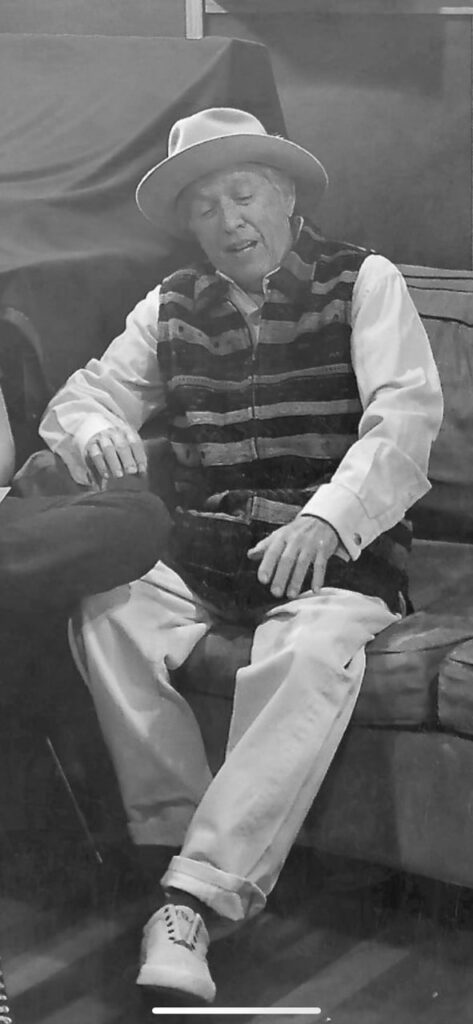
Thank you. Last words are yours.
Thank you. These were wonderful questions.
I guess my last words for now are that when you are inspired, when you feel you have all the answers, be still and listen to what is within you. You can still grow and change and express more love. You can be a force for good in the world. Try to cultivate the meaning that you have.
A line from a song that P.F. Sloan and I wrote called Ginger Street says,
“Determined to make each day better than the one before.
Just around the corner on the other side of the world.
Someday our hearts will meet on Ginger Street.”
I hope people enjoy this new album ‘I Love My Life,’ and I hope everyone can love their lives.
Klemen Breznikar
Headline photo credit: Stevo Rood
Stephen J. Kalinich Website / Facebook / Instagram / X

